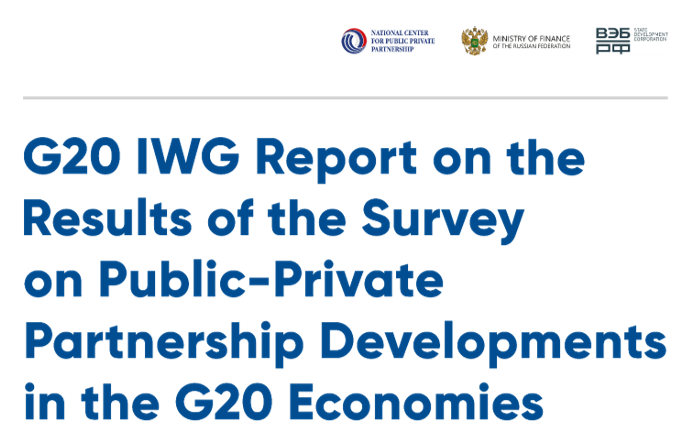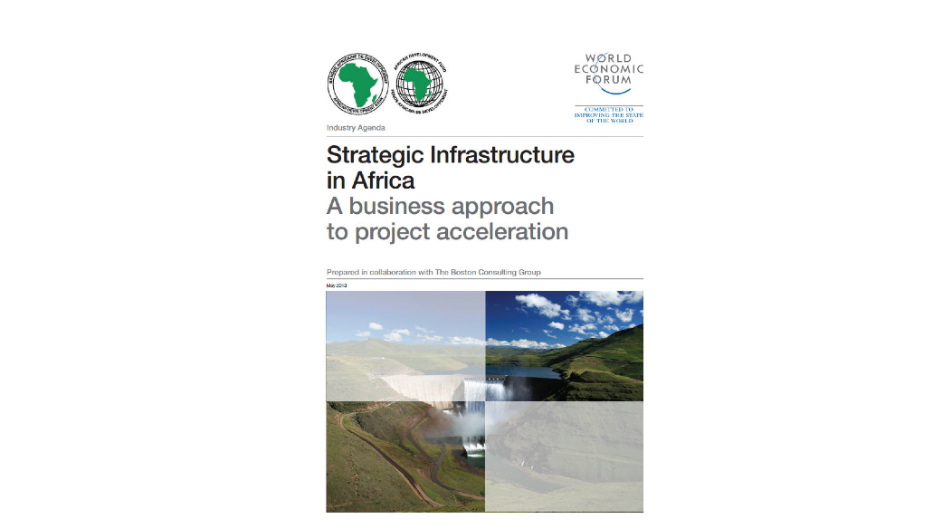Publications
Filter by
542 results found
In just a few years, ESG, also known as sustainable or responsible investing, has moved from a slightly idealistic nicheto front-page, a mainstream dimension for investors, one that strongly influences the performance and resilience of their investment over time. This is particularly the case in infrastructure, in view of its wide reaching and long-term consequences for the community.

A series of methodologies and tools based on the evidence-based infrastructure (EBI) approach, helping governments assess and improve their capacity to plan, deliver and manage infrastructure systems.


The paper is part of a series of 19 papers and a synthesis report produced by the International Transport Forum’s Working Group on Private Investment in Transport Infrastructure.



The G20 Infrastructure Working Group (IWG) Survey on PPP Development underlying this Report provides reference on the frameworks for infrastructure financing through Public-Private Partnership in G20 economies


This program aims to give Victoria the world class infrastructure and services needed to drive continued economic growth, cater for a growing population and secure the State’s future prosperity.


The Reference tool is meant to serve as a practical tool to help governments and other stakeholders understand and implement the critical success factors that deliver inclusive infrastructure.

The Project Complexity and Risk Assessment Tool supports implementing agencies to accurately determine the level of risk and complexity of a project, for the purposes of project approval and expenditure authority.

The objective of the report and the accompanying index is not simply to rank countries, but to use score movements as a benchmark from which to investigate trends, identify successful PPP performers, and focus on the approaches that can facilitate a better understanding of common challenges and best-practice standards.

This paper provides a preliminary assessment of expected benefits of government-backed identification systems for firms across a variety of industries.


This page discusses the need for legal reform to enhance the PPP environment in EBRD regions.






This report presents a selection methodology that proposes a common language with clear economic, technical, social and regional criteria to identify infrastructure projects with the potential for acceleration.



OECD Investment Policy Reviews present an overview of investment trends and policies in the countries reviewed, using the OECD Policy Framework for Investment to assess the climate for domestic and foreign investment at sub-national, national or regional levels. They then propose actions for improving the framework conditions for investment and discuss challenges and opportunities for further reforms.



As part of its Public Procurement Toolbox, the OECD developed indicators to measure the performance of public procurement systems.



The OECD Recommendation on Public Procurement is the overarching OECD guiding principle on public procurement that promotes the strategic and holistic use of public procurement.


The Global Toolbox provides an interactive inventory of MDB instruments, with their hyperlinks and comprehensive overviews, to support private investment across the globe.

The review consisted of a detailed assessment of the current institutional set-up, including roles and responsibilities for EE in Turkey, along with a comparison with international experience and best practices. A final set of institutional options and recommendations are provided at the end of the report.

PPP webinars presents trending topics on PPPs and infrastructure, as well as the latest tools for practitioners, case studies, and presentations from experts.

This study aims to assist Bangladesh in becoming a viable player in the IT/ITES industry in five years by identifying the strategies, programs and investments needed in order for the country to leverage ICT for economic growth and competitiveness, as well as for social development by increasing gender equality and youth employment.



